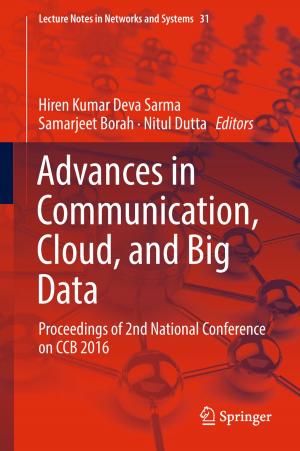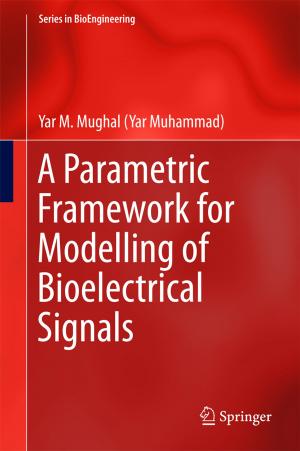The Vienna LTE-Advanced Simulators
Up and Downlink, Link and System Level Simulation
Nonfiction, Science & Nature, Technology, Telecommunications, Computers| Author: | Stefan Schwarz, Martin Taranetz, Markus Rupp | ISBN: | 9789811006173 |
| Publisher: | Springer Singapore | Publication: | March 23, 2016 |
| Imprint: | Springer | Language: | English |
| Author: | Stefan Schwarz, Martin Taranetz, Markus Rupp |
| ISBN: | 9789811006173 |
| Publisher: | Springer Singapore |
| Publication: | March 23, 2016 |
| Imprint: | Springer |
| Language: | English |
This book introduces the Vienna Simulator Suite for 3rd-Generation Partnership Project (3GPP)-compatible Long Term Evolution-Advanced (LTE-A) simulators and presents applications to demonstrate their uses for describing, designing, and optimizing wireless cellular LTE-A networks.
Part One addresses LTE and LTE-A link level techniques. As there has been high demand for the downlink (DL) simulator, it constitutes the central focus of the majority of the chapters. This part of the book reports on relevant highlights, including single-user (SU), multi-user (MU) and single-input-single-output (SISO) as well as multiple-input-multiple-output (MIMO) transmissions. Furthermore, it summarizes the optimal pilot pattern for high-speed communications as well as different synchronization issues. One chapter is devoted to experiments that show how the link level simulator can provide input to a testbed. This section also uses measurements to present and validate fundamental results on orthogonal frequency division multiplexing (OFDM) transmissions that are not limited to LTE-A. One chapter exclusively deals with the newest tool, the uplink (UL) link level simulator, and presents cutting-edge results.
In turn, Part Two focuses on system-level simulations. From early on, system-level simulations have been in high demand, as people are naturally seeking answers when scenarios with numerous base stations and hundreds of users are investigated. This part not only explains how mathematical abstraction can be employed to speed up simulations by several hundred times without sacrificing precision, but also illustrates new theories on how to abstract large urban heterogeneous networks with indoor small cells. It also reports on advanced applications such as train and car transmissions to demonstrate the tools’ capabilities.
This book introduces the Vienna Simulator Suite for 3rd-Generation Partnership Project (3GPP)-compatible Long Term Evolution-Advanced (LTE-A) simulators and presents applications to demonstrate their uses for describing, designing, and optimizing wireless cellular LTE-A networks.
Part One addresses LTE and LTE-A link level techniques. As there has been high demand for the downlink (DL) simulator, it constitutes the central focus of the majority of the chapters. This part of the book reports on relevant highlights, including single-user (SU), multi-user (MU) and single-input-single-output (SISO) as well as multiple-input-multiple-output (MIMO) transmissions. Furthermore, it summarizes the optimal pilot pattern for high-speed communications as well as different synchronization issues. One chapter is devoted to experiments that show how the link level simulator can provide input to a testbed. This section also uses measurements to present and validate fundamental results on orthogonal frequency division multiplexing (OFDM) transmissions that are not limited to LTE-A. One chapter exclusively deals with the newest tool, the uplink (UL) link level simulator, and presents cutting-edge results.
In turn, Part Two focuses on system-level simulations. From early on, system-level simulations have been in high demand, as people are naturally seeking answers when scenarios with numerous base stations and hundreds of users are investigated. This part not only explains how mathematical abstraction can be employed to speed up simulations by several hundred times without sacrificing precision, but also illustrates new theories on how to abstract large urban heterogeneous networks with indoor small cells. It also reports on advanced applications such as train and car transmissions to demonstrate the tools’ capabilities.















